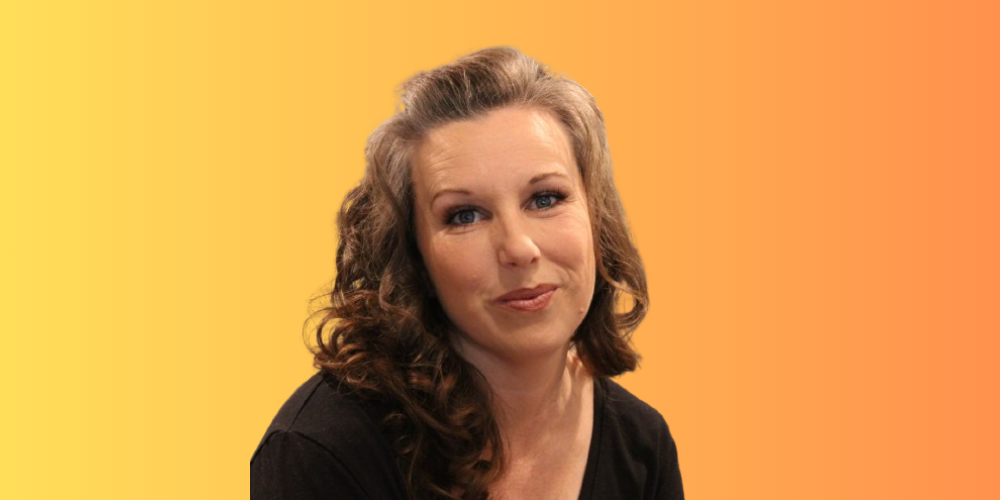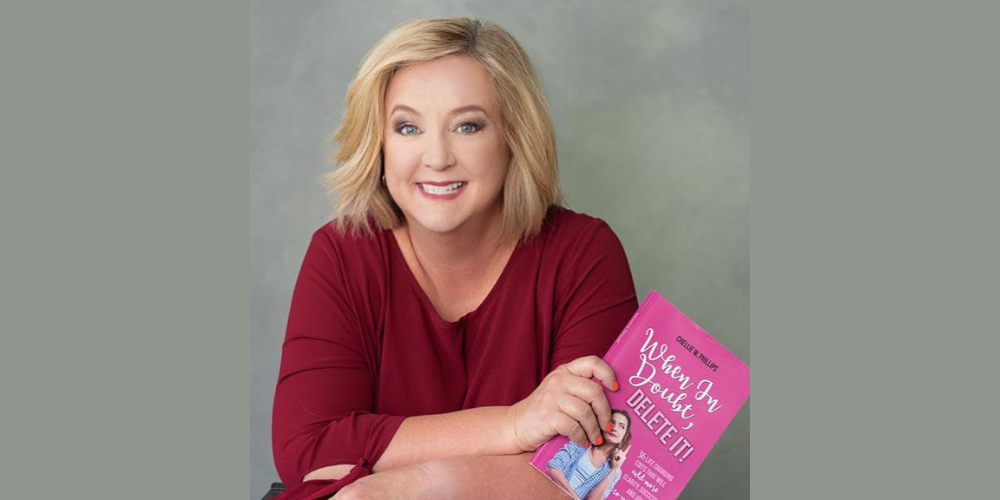Raj Girn: This week’s 2-part series themed around Media & Communications is called: “Today’s Best Public Relations Strategies To Create Business Growth Online.” My guest this week is Dr. Jay Feldman, who is a serial entrepreneur and co-founder of OtterPR.
Here is Part Two of our conversation:

Raj Girn: To someone that has just been in this conversation, listening to everything that you’re saying here and maybe perhaps didn’t realize truly how powerful it is to have the support system of a publicist and a strategy, when is the right time for them to hire a publicist?
Jay Feldman: This is going to depend on person to person, company to company. And this is the one thing I’ll say maybe you don’t need right away. I think there’s a lot of pieces you need to put into place with your business before you start thinking about PR. I think PR is, for one, thought leaders who already have a steady income through their own thought leadership, whether it be courses or one-on- one coaching. I think once you’re doing $5,000 per month in sales through those means, it’s time to hire a publicist because PR is the best form of marketing for any thought leader. I strongly believe that it’s better than any form of paid advertising because you get the two for one, you get the organic traffic that’s hopefully long term, and you get the authority from it. For companies, I think any established company needs a PR firm on retainer, and not just for media relations and outgoing opportunities, but for on-hand communications going over statements that are being released. If anything bad happens, I think you need a publicist on staff to make sure that it’s communicated correctly.
“Any established company needs a PR firm on retainer, and not just for media relations and outgoing opportunities, but for on-hand communications going over statements that are being released.” ~Jay Feldman
And then also, for anything that happens in the media. For example, we work with a cybersecurity company and they signed on with us and then there was some oil hack that was viral in the news, and they absolutely crushed it. And they wouldn’t have had those opportunities if it weren’t for having someone on retainer that we can see the story hits. We have a great person to slide into that conversation. And now their name is nationwide. The value of their company has gone up 10 times. I can’t give you an actual number, but media coverage is the best thing for valuation. Lots of new eyeballs, lots of new exposure, lots of new backlinks, lots of new SEO. All because right place, right time. So I definitely think it’s critical for companies to have this in their back pocket and thought leaders. I think once you’re ready, there’s no better form of marketing in the world. I think it’s probably the second thing you should invest in after your own social media contact team.
For anyone that’s just joining us, folks, I’m speaking to the co-founder of Otter PR, Jay Feldman. And for anyone that isn’t too sure if PR is for them, what would you say to them Jay, that hasn’t already been said?
Honestly, and this is from being in the industry for a long time, I think I’m going to say it might not be for you. And that might not be the answer that you expected, but it really isn’t for everyone. And that’s why we do these discovery calls with myself and my partner to see if you have a back story, a product, a service that’s actually going to be interesting for journalists, reporters, podcast hosts, contributors to talk about and to ask you questions. Do you have a subject matter expertise? A lot of people don’t. A lot of companies don’t have that interesting offering and can’t really utilize a company like us. And we won’t work with you if you can’t. So my call to action for you is find out if you do. If you think you do, you might and if you might, there’s a good chance we can turn it into something actually readable and newsworthy. So, again, it’s not for everyone. It’s definitely not the first place to point your marketing dollar. But if it lines up, there is no better opportunity in the marketing world than PR.

Absolutely. What are some realistic expectations a person or a company should be thinking about when hiring a publicist Jay?
So the most unrealistic expectation that people come into PR with is that they’re going to give us a $1,000 and get $2,000 back in new clients. This is not paid advertising. You don’t give us money, and we get you clients. We’re not a lead generation firm. We’re not an advertising firm. Our goal is to communicate your brand to the media in a way that we think is going to get you the best and highest form of media coverage. And we’re confident enough in your story that we’re able to guarantee it and the expectations there. And I think you should come into it with the mindset of is we might be chugging away at this for three months before we land the first big break.
And there’s a lot of media out there. Not every mention is going to be in ‘Forbes.’ Not every feature is going to be in ‘The New York Times.’ So being able to build a media presence slowly, especially if you’re starting from zero, is something that you’re going to have to wrap your head around. Not everyone goes from zero to New York Times bestseller. A lot of times it’s slow and steady. But again, with PR viral does happen. We have seen it happen in the first week. We’ve seen it happen in month two. It happens. And the only way to make it happen is to actually go out there and seek out those opportunities. So I’m not saying it doesn’t, but the expectation should be to come in and start laying down some groundwork on your media presence. And after time, as you become more relevant, bigger and better opportunities will present themselves and customers will come and customers will pay you more because of it.
“The expectation should be to come in and start laying down some groundwork on your media presence. And after time, as you become more relevant, bigger and better opportunities will present themselves and customers will come and customers will pay you more because of it.” ~Jay Feldman
Absolutely. Jay, I have got to ask you this now. In addition to traditional PR where you secure placements for your clients, and this is kind of predominantly what we’ve been talking about so far, your company also provides other services to get them in front of audiences. Can you share what some of those are and what maybe some of the expectations should be to use them? Because not all companies go down the route outside of traditional media placements.
I’ve got to be honest, I’m not sure what this question is, because what we do is get them in front of audiences. That’s every service that we offer, getting you on podcasts, getting you featured online, getting you mentioned online, getting you a TV interview, getting you a speaking engagement. All of it eventually comes down to you getting in front of new audiences. Other than the stack that we’ve talked about so far, I think organic media traffic getting in front of other audiences, that’s what we do. However, we’re going to do it. We don’t do influencer marketing. We don’t do content creation for you. We don’t run your ads for you. We get you in front of other audiences via journalists, reporters, podcast hosts, anchors, contributors. That’s what we focus on.
You just actually answered my question without realizing that you answered it. So in addition to the placements of media, some of the other services you provide is you look at the possibility of speaking engagements, right? That’s another piece of your offering. You also look at the opportunity of where there could be awards opportunities, right? And helping them maybe create a little bit more credibility. Can you share a little bit about that as well?
Just because a lot of times when you go and have a publicist, you kind of try and figure out what’s the difference between what one does versus the other? Because all PR companies job is to put you in front of an audience and they utilize media platforms as diverse as possible within your arena that the kind of people that you want to go after, they all do that. But the great thing that I found about your company is that that all these other kind of offshoots that you look at for specific types of clients. So talk to us a little bit about that piece.

And I think the deeper question here is, what falls under the PR umbrella? And we try and hit as many of those service offerings as possible, including verification on social media, a very popular topic among our clients and people that are chiming in. Speaking is also a big one. We work with a TED event booker, who is absolutely incredible. His name’s Darryl. They’ll be meeting him soon. And we also do a lot of other things in that realm. We do crisis communication for people and companies who are in some trouble. We do online reputation management for people whose reputation has been tarnished online. All of those things kind of fall under the PR umbrella.
We try and help in as competent and as widespread away as we possibly can. And like you said, it’s all about who wants to hear your story. Awards is a great example of that. Why do you deserve an award? The awarders are asking. We want to hear their story. Why should they get one? We tell them. Why not take our clients and put them wherever we see fit, wherever we possibly can? Who wants to hear their story and offer something in return? Same thing with speaking conferences, seminars, universities, talks. They’re all looking for people to come and hear their story. And they’re looking forward to agencies and speaking bookers such as ourselves, they’re asking us for people, so we try and put the name out there and the story as much as possible.
Absolutely, and that’s the answer I was looking for Jay. So let me ask you this. You’ve kind of touched upon this a little earlier on in our conversation, but I want to kind of hone in on this, because this is another area of confusion that a lot of clients that come to me have when they broach the topic of PR, and that is that the media landscape has changed a lot since the advent of new media and social media. And we’ve been talking about that throughout the entire conversation, similar to marketing, where clients are now in a place where they have an opportunity to marry earned and paid media placements into a more robust awareness campaign.
So, traditionally speaking, a lot of people felt that you hire a PR company and they get you placements. But today, PR has really grown beyond that, where there are opportunities that is earned media and this opportunity that is paid media for those people who do not understand how and when to use each of those. Can you maybe share a little bit of your insights in terms of where you might go down the road of one versus the other, if not both?
Sure, absolutely. The differences should be obvious. Earned media is when whoever is writing or reporting genuinely wants to hear your story and ask for nothing in return. And that’s generally the media coverage that we’re trying to get for our clients. However, there is another side to that coin. Media is funded by several things, one of them being media buying. And that’s where you can pay for either an article or a sponsored post, sometimes even a podcast guest appearance. I do it for myself. I’m going to be on John Lee Dumas’s Entrepreneurs on Fire. I had to pay a significant production fee to get on that show. I’m going to be heard by a million monthly downloads. That media buy is worth it for me.
“Earned media is when whoever is writing or reporting genuinely wants to hear your story and ask for nothing in return.” ~Jay Feldman
So in terms of when to use it, and that’s, I think, another reason a PR company can be useful, because there’s a lot of opportunities to pay for media segments, for sponsored posts, for articles, for podcast interviews. I have an opportunity to charge people to come to my show. I do it every week, and it’s effective. And they get their work out of it because people listen to the show, and hopefully, they close some clients from the question of whether to use it is going to be dependent on that platform. It’s going to be dependent on what the listenership is, who is reading it, what’s the context? What’s the buying a feature article on ‘Forbes’?
Or even if no one reads it, it’s still going to be awesome marketing material for you, just like a powerful influencer campaign. If you pay Kim Kardashian $1 million to do a shout-out with your makeup bottle, even if you only make $100,000 from that promotion, the material you have of Kim Kardashian holding your bottle is going to go on for ages as an advertisement you can use. It’s going to be on your website. It’s going to be all over your social media. And the same thing has to be said about media. Sometimes buying an article on ‘Forbes’ is worth it. Sometimes paying a production fee to be on a massive podcast is worth it. But you need to know when it’s not worth it. You need to know who’s listening. You need to know who’s reading. You need to know what the value of that is. And that’s where a PR professional can really come into play.
That’s the answer right there. And so anyone out there who doesn’t really understand the difference between the church and state of this. My answer there that I normally give to people is basically you really do need to do both. You just need to know what platforms are worth doing, what with, and what your intended goal is with it because not everyone’s looking to earn new clients. Some people genuinely want to kind of really buff up their personal brand profile. So I think that’s the other thing is when you go to market with a PR strategy and PR representation. I think you have to really be clear on what are you looking to accomplish from that because that can also, and correct me if I’m wrong, change the PR style of strategy that you guys go to market with. If a person is looking for more eyeballs with you having more authority or if a person really needs to find the right clients. Can you share a little bit about your insights there?

You’re absolutely correct. And this goes back to not everyone’s goals are the same, and this is why the strategies are so different. So if your goal is to build some social proof on your website, you want the “as seen on FOX” and CNN and Market Watch on your website and social media. We can do that for you for $100, one-time fee. That’s very easy. That’s just getting the logos on your website. If you want a full feature in ‘Forbes,’ you can pay for that too. But that’s generally going to be a lot more expensive. And again, no one’s probably going to read it. Those generally range from $5,000 to $7,000. You can do the same on the ‘The New York Times,’ and that’s usually just to say, look, I’m featured on ‘Forbes.’ Here’s a social media post.
And if you’re pitching your company to investors, that also goes a long way. However, quality media buying is a lot more expensive than quality pitching. If you want to feature an article on ‘Forbes,’ you’re going to end up paying $6,000 one time and maybe wait six months for your name to be in ‘Forbes.’ Whereas if you use a publicist, you’re then tracked. It’s much less expensive and your opportunities are limitless. You might not end up at ‘Forbes,’ you might end up in a lot better places. But media buying is an opportunity for companies and people who are listening and maybe heard me say earlier, PR might not be for you. You might not have a story. If you don’t have a story this is a great option for you to build some social proof. It does work. You can use it in your social media advertising “as seen on CNN.” You can use it on your website. You can use it in your sales emails. It will help you increase conversions, that will help you increase your click-through rates. And it can be done very affordably. Just getting those logos. I hope that was helpful.
It definitely was. So you’re hearing it right here, guys. We are in conversation with the co-founder of Otter PR, Jay Feldman. I want to kind of take the conversation as we get ready to close out in a bit of a different direction for anyone out there who doesn’t quite understand the benefit of PR strategy to increase revenue. Can you explain that piece for us a little bit, Jay?
Yeah, and this goes back to increasing traffic, organic traffic specifically. And I think PR is a unique tool in a marketers arsenal for doing that because the goal is, like we’re doing right now. Hopefully, people are listening to this for years to come. They’re searching on their Apple podcast platform for PR strategy. And it’s going to drive people to my channels for a long, long time, which is hopefully going to increase my revenue. The same thing has to be said about the articles that I write for Entrepreneur.com. Those are going to rank on the first page of Google for a lot of different search terms because it’s Entrepreneur.com. Hopefully, each of those articles drives organic traffic with authority hot traffic because they’re coming to get more of me and talk to me for a long time. And that can’t be said about a lot of forms of marketing, especially social media marketing, where you’re paying for clicks, you’re paying for traffic reviews. This is really special because it’s traffic that’s coming in hot with authority. That’s how you’re going to increase revenue. That’s how you’re going to get your ROI from PR, and it’s going to last a lifetime.
Absolutely. And also to add to that, something that Jay said a little earlier is that just could be someone reading, watching, hearing you talk that could just change the game in your business. So, Jay, is there anything that I haven’t touched upon that you feel that you’d like to add as we get ready to close out?

We had a lot of good questions here. I think one topic of conversation, especially when you start talking about PR and media coverage that people get very interested in, is verification. And it’s usually one of the big things people ask me, I don’t want to go to in detail about it. But yes, that is the number one factor in getting the blue checkmark is media coverage. So if you want to get verified, you should probably talk to a PR agency as well.
There you go, guys. Any final words that you’d like to leave everyone with, Jay, about the importance of being intentional when crafting the right story to communicate to the stakeholders out there, whether it be prospective clients, getting more followers and fans, increasing your authority because you’re getting in specific types of media? Anything that you want to leave people with?
The number one message, I want to leave people with, specifically anyone who’s an aspiring thought leader and wants to make a living doing that, is that you need to apply a PR strategy. It’s the number one tool in your arsenal as a marketer for long-term success. It’s people coming to you instead of you going to them and them coming to you and saying, you know, I’m willing to pay whatever, because I know you’re the expert. I want to work with you specifically versus you advertising to them in cold, emailing to them and asking for referrals. It’s going to be the golden arrow that’s going to change the game for you.
Any companies who are out there who are interested in raising money, building some trust with your customers and maybe don’t have a spokesperson or a great story, PR can also go a long way for increasing the social proof authority of your website, of your products, of your services. And a lot of times it’s just a one-time fee. It’s media buying, but don’t just do it blindly. Don’t go on Fiverr and try and buy some stuff. You have to know what you’re paying for and know how to actually use it to get the most out of it. And again, if you’re interested in learning more, figuring out if you do have a story for PR, I would love to talk to you. We have offices in Florida. If you want to talk to me personally, the best way is to send me a direct message on Instagram @drjayfeldman. Let me know that you heard me here. And I promise you, I’ll set up a personal consultation with you.
That is wonderful. Jay. Thank you so much for that. You heard it right here, guys. There are so many different reasons to implement your strategy and there are different ways to look at why PR strategy is important to your bottom line, also to your brand awareness and credibility. Hit up Jay. Jay once again, give people your handle. And if there’s an email or somewhere else that you want to send people to, to fill out any form or something like that, to be able to get in front of you and your submission process, just let everyone know what that is.
“There are so many different reasons to implement your strategy and there are different ways to look at why PR strategy is important to your bottom line, also to your brand awareness and credibility.“ ~Raj Girn
So if you want to get in touch with me, and I want everyone who’s listening to get in touch with me personally, it’s going to be [email protected]. Please check out our website too at otterpr.com. And the best way to get in touch with me directly is going to be on Instagram. So drop me a DM. Let me know that you heard me here @drjayfeldman and I promise to respond and have a personal consultation with you about PR verification, about social proof, about whatever it is that you want to talk about in the media space. I’d be happy to. And I’m looking forward to hearing from you guys.
Thank you so much for joining me for this really important discussion, Jay, and come back soon. Let’s have another conversation.
Absolutely Raj. Thank you so much for having me. And thank you, everyone, for tuning and listening.
Absolutely.
Thanks so much, guys, for hanging out with Jay and I today. I really hope that you got some real value from our discussion and that you understand the importance of PR, when to implement it and where.
For more training like this, please subscribe to my YouTube channel at The Open Chest Confidence Academy. We’re also on podcast platforms everywhere. Search ‘The Transform Your Confidence Show’ and I encourage you to join our free coaching newsletter community. Just head over to our website at www.theopenchestconfidenceacademy.com/newsletter. And finally join our free professional development incubator on Facebook at Transform Your Confidence
Until next week, take care of yourselves.










